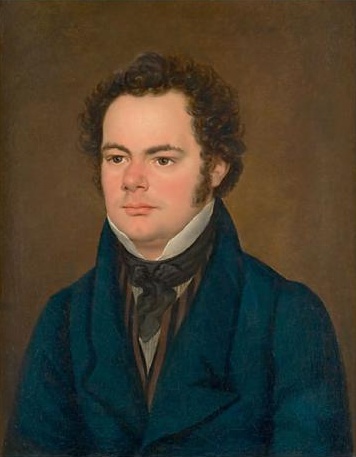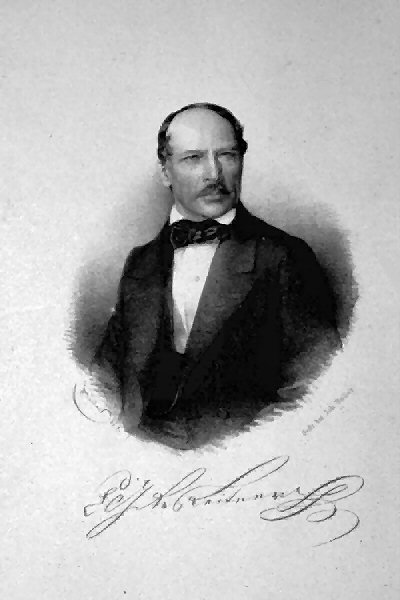|
List Of Compositions By Franz Schubert (1823)
Franz Schubert's List of compositions by Franz Schubert#768–798, compositions of 1823 are mostly in the Deutsch catalogue (D) range D 768–798, and include: * Instrumental works: ** Piano Sonata in E minor, D 769A (Schubert), Piano Sonata in E minor, D 769A ** Piano Sonata in A minor, D 784 (Schubert), Piano Sonata in A minor, D 784 ** ''Six moments musicaux (Schubert), Moments musicaux'', D 780 (composition dates however uncertain) ** ''Valses Sentimentales and Valses Nobles (Schubert), Valses Sentimentales'', D 779 (not necessarily all composed in 1823) * Vocal music: ** ''Die Verschworenen'', D 787 (completed in 1823) ** ''Fierrabras (opera), Fierabras'', D 796 ** ''Rosamunde'', D 797 ** ''Die schöne Müllerin'', D 795 ** "Auf dem Wasser zu singen", D 774 ** "Du bist die Ruh", D 776 ** "Lachen und Weinen", D 777 Table Legend List , - , 768 , 768 , data-sort-value="096,1827-3" , 96,3(1827) , data-s ... [...More Info...] [...Related Items...] OR: [Wikipedia] [Google] [Baidu] |
Franz Schubert
Franz Peter Schubert (; 31 January 179719 November 1828) was an Austrian composer of the late Classical and early Romantic eras. Despite his short lifetime, Schubert left behind a vast ''oeuvre'', including more than 600 secular vocal works (mainly lieder), seven complete symphonies, sacred music, operas, incidental music, and a large body of piano and chamber music. His major works include " Erlkönig" (D. 328), the Piano Quintet in A major, D. 667 (''Trout Quintet''), the Symphony No. 8 in B minor, D. 759 (''Unfinished Symphony''), the "Great" Symphony No. 9 in C major, D. 944, the String Quintet (D. 956), the three last piano sonatas (D. 958–960), the opera '' Fierrabras'' (D. 796), the incidental music to the play '' Rosamunde'' (D. 797), and the song cycles '' Die schöne Müllerin'' (D. 795) and ''Winterreise'' (D. 911). Born in the Himmelpfortgrund suburb of Vienna, Schubert showed uncommon gifts for music from an early age. His father gave him his first v ... [...More Info...] [...Related Items...] OR: [Wikipedia] [Google] [Baidu] |
Johann Wolfgang Von Goethe
Johann Wolfgang von Goethe (28 August 1749 – 22 March 1832) was a German poet, playwright, novelist, scientist, statesman, theatre director, and critic. His works include plays, poetry, literature, and aesthetic criticism, as well as treatises on botany, anatomy, and colour. He is widely regarded as the greatest and most influential writer in the German language, his work having a profound and wide-ranging influence on Western literary, political, and philosophical thought from the late 18th century to the present day.. Goethe took up residence in Weimar in November 1775 following the success of his first novel, '' The Sorrows of Young Werther'' (1774). He was ennobled by the Duke of Saxe-Weimar, Karl August, in 1782. Goethe was an early participant in the '' Sturm und Drang'' literary movement. During his first ten years in Weimar, Goethe became a member of the Duke's privy council (1776–1785), sat on the war and highway commissions, oversaw the reopening of sil ... [...More Info...] [...Related Items...] OR: [Wikipedia] [Google] [Baidu] |
Friedrich Leopold Zu Stolberg-Stolberg
Friedrich Leopold Graf zu Stolberg-Stolberg (7 November 1750 – 5 December 1819), was a German lawyer, and translator born at Bramstedt in Holstein (then a part of Denmark). He was also a poet of the ''Sturm und Drang'' and early Romantic periods. Life Friedrich Leopold belonged to a cadet branch of the Stolberg family. He was born the son of a Danish magistrate and owner of a manorial estate, Count Christian zu Stolberg. A few years after his birth the family moved to Copenhagen and soon formed friendships with distinguished literary men, especially Friedrich Gottlieb Klopstock. Together with his elder brother Christian, Friedrich Leopold went to the University of Halle in 1770, in order to study German Law. His other studies embraced the Classics and various historical courses. The two brothers then studied in Göttingen and were a prominent members of the Göttinger Hainbund, a literary society of young men who had high aspirations for the unity of the country, and wh ... [...More Info...] [...Related Items...] OR: [Wikipedia] [Google] [Baidu] |
Alfonso Und Estrella (Overture)
' (''Alfonso and Estrella''), 732, is an opera with music by Franz Schubert, set to a German libretto by Franz von Schober, written in 1822. Along with the later ''Fierrabras'', composed in 1823, it marks Schubert's attempt to compose grand Romantic opera in German, departing from the Singspiel tradition. Unlike ''Fierrabras'', it contains no spoken dialogue. Background In close collaboration with von Schober in the region of Sankt Pölten, Schubert wrote the vocal numbers of ''Alfonso und Estrella'' between September 1821 and February 1822. Schober, only one year older than the young Schubert, and a dabbler in literature, music and theatre, was enthusiastic about the collaboration. Schubert and Schober shared an appreciation for the operatic theories of Ignaz von Mosel, a patron of Schubert's, who supported Gluck's operatic ideals. This influence may have led to the omission of all spoken dialog, parting from the German Singspiel form followed in operas such as Mozart's ''Die ... [...More Info...] [...Related Items...] OR: [Wikipedia] [Google] [Baidu] |
Matthäus Casimir Von Collin
Matthäus Casimir von Collin (3 March 1779 – 23 November 1824) was a leading poet in Vienna. Some of his works have been set to music by Schubert, such as Licht und Liebe (D.352), Der Zwerg (D. 771), Wehmut (D. 772) and Nacht und Träume (D. 827). Matthäus Casimir von Collin was born in Vienna, the younger brother of the Viennese poet and playwright Heinrich Joseph von Collin. He was editor of the ''Wiener Jahrbücher der Literatur''. He was sympathetic to the Romantic movement, and intimate with its leaders. His dramas on themes from Austrian national history (''Belas Krieg mit dem Vater'', 1808; ''Der Tod Friedrichs des Streitbaren'', 1813) may be regarded as the immediate precursors of Grillparzer's historical tragedies. From 1815 until his death, he was one of the preceptors of the Duke of Reichstad, along with captain Johann Baptist von Foresti and under the direction of Count Moritz von Dietrichstein Moritz is the German equivalent of the name Maurice. It may refer ... [...More Info...] [...Related Items...] OR: [Wikipedia] [Google] [Baidu] |
Der Zwerg (Schubert)
Der Zwerg (The Dwarf) is a lied (or ballad) for voice and piano by Franz Schubert, written in the mid-1820s on a text by Matthäus von Collin. The poem is in ''terza rima''. In Otto Erich Deutsch's catalogue of Schubert's works, it is Op. 22, No. 1, D. 771. The singer sings in three different voices: the Dwarf, his mistress the Queen (whom the Dwarf strangles with a red silk scarf in the song), and the narrator. Recordings are available by several notable singers, including George London, Dietrich Fischer-Dieskau, Lula Mysz-Gmeiner, Thomas Quasthoff, Jessye Norman, Ian Bostridge,"Franz Schubert: Lieder" Ian Bostridge, Tenor; Julius Drake, Pianist. EMI Classics 56347 and Matthias Goerne Matthias Goerne (born 31 March 1967) is a German baritone. He has performed and recorded extensively, both on the opera stage and in Lieder settings. Goerne has been referred to as "Today's leading interpreter of German art songs" by the Chicag .... Song text Im trüben Licht verschwinden ... [...More Info...] [...Related Items...] OR: [Wikipedia] [Google] [Baidu] |
Der Zwerg, D
Der or DER may refer to: Places * Darkənd, Azerbaijan * Dearborn (Amtrak station) (station code), in Michigan, US * Der (Sumer), an ancient city located in modern-day Iraq * d'Entrecasteaux Ridge, an oceanic ridge in the south-west Pacific Ocean Science and technology * Derivative chromosome, a structurally rearranged chromosome * Distinguished Encoding Rules, a method for encoding a data object, including public key infrastructure certificates and keys * Distributed Energy Resources * ∂, the partial derivative symbol *Deep energy retrofit, an energy conservation measure Organizations * Digital Education Revolution, former Australian Government-funded educational reform program * DER rental (Domestic Electric Rentals Ltd), a UK television rentals company * Documentary Educational Resources, a non-profit film producer and distributor Other uses *Defence (Emergency) Regulations, legal regulations promulgated by the British in Mandatory Palestine in 1945 *Department of Env ... [...More Info...] [...Related Items...] OR: [Wikipedia] [Google] [Baidu] |
Karl Gottfried Ritter Von Leitner
Karl (or ''Carl'') Gottfried Ritter von Leitner (November 18, 1800 – June 20, 1890) was an Austrian author and publicist from Graz, Styria, Austria. From 1837 to 1854 he was the first Secretary to the Estates in Styria. He was the editor of the newspaper ''Steiermark Zeitschrift'' (Styria Times). He was the curator of the Landesmuseum Joanneum (Joanneum National Museum) in Graz from 1858 to 1864, and co-founded the Historical Association for Styrian Friendship with Peter Rosegger. Some of his ballads were set to music by Franz Schubert. References * Anton Schlossar: Leitner, Karl Gottfried Ritter von'. In: ''Allgemeine Deutsche Biographie ''Allgemeine Deutsche Biographie'' (ADB, german: Universal German Biography) is one of the most important and comprehensive biographical reference works in the German language. It was published by the Historical Commission of the Bavarian Aca ...'', Vol. 51, Duncker & Humblot, Leipzig 1906, pp. 629–639. 19th-centur ... [...More Info...] [...Related Items...] OR: [Wikipedia] [Google] [Baidu] |




